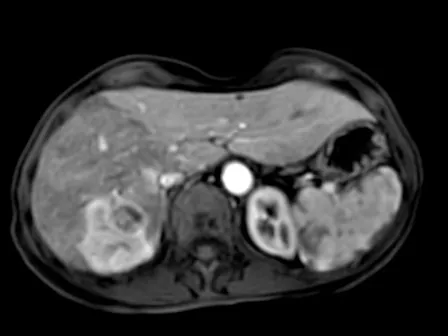
Feb 27, 2026
This new edition of the Liver Imaging Course introduces an interactive, case-based format designed to immerse participants in the real-world diagnostic process of liver imaging. Structured as a virtual reading-room experience, the course minimizes traditional lectures and mostly focuses on interpreting, discussing, and learning from clinical cases.
Over the span of three intensive half-days, participants will review and discuss a large selection of CT and MRI liver cases under the guidance of Prof. Giuseppe Brancatelli. Each session starts with short lectures, followed by the live presentation of selected cases, during which participants will be actively involved in describing findings, proposing differential diagnoses, and reaching a final conclusion.
After each case discussion, a concise 1–2-slide summary will highlight key diagnostic points, underlying pathology, and relevant imaging criteria.
This course encourages participants to engage actively in the case discussions. Although not mandatory, active involvement is highly recommended to foster a collegial, small-group learning environment. Everyone will be invited to contribute, and participation will be rotated fairly to ensure that all attendees who wish to take part have the opportunity to do so.
Those who prefer not to speak up may interact via the chat — even anonymously — or simply listen to the discussions of other participants.
The course will cover:
- Focal liver lesions in the non-cirrhotic liver
- Incidental liver lesions
- Vascular disorders of the liver
- Cystic liver lesions
- Fat, calcium, and fibrosis in the liver
Rather than being taught through frontal lectures, these topics will be integrated into case discussions and reinforced through practical imaging examples.
Additional Features
- End-of-day Kahoot quizzes to reinforce key learning points
- Pre-course access to a curated set of DICOM liver imaging cases, which will be reviewed and discussed together during the final session
By the end of this course, participants will have refined their ability to approach focal liver lesions systematically, strengthened their confidence in interpreting liver CT and MRI, and gained practical familiarity with the LI-RADSsystem.
This radiology course is organised by Unilabs Academy, an EACCME Trusted Provider.
- Confidently characterize and manage incidental liver lesions in the non-cirrhotic liver
- Identify and differentiate cystic and solid liver lesions with a structured imaging approach
- Recognize the key imaging features of vascular disorders of the liver
- Understand how fat, fibrosis, and calcification patterns can guide you toward the correct diagnosis
- Interactive case-based learning — explore real-life examples of cystic and solid lesions, incidental findings, and vascular disorders
- Hands-on interpretation — read and analyze individual cases in a guided, step-by-step format
- Engaging group discussions — share insights and reasoning with peers under expert mentorship
- Direct Q&A with the radiologist mentor — get practical answers and tips from an experienced specialist
- Comprehensive resources — access all presentation slides, recorded sessions, and supplementary materials
- Post-fellowship access — revisit the discussed cases anytime after the course
- Personal online dashboard — enjoy seamless access to all materials through the Unilabs Academy platform
- Certificate of attendance — CME accreditation by UEMS/EBR currently under application
This course is ideal for radiology residents, registrars, and early-career radiologists seeking a hands-on, interactive alternative to traditional didactic learning.
Group Discounts for Radiology Education
Unilabs Academy is happy to offer group discounts to support radiology education within hospitals or practices. Please email us at academy.radiology@unilabs.com for details.
| Hardware | Tablets * | Minimum | Recommended |
|---|---|---|---|
| Memory (RAM): | 2 Gigabyte | 8 Gigabyte | 16 Gigabyte |
| Processor (CPU): | Dual core 1.85 Ghz | Dual core 2 Ghz | Quad core 2.5 Ghz |
| Internet connection | Minimum | Recommended | |
| Speed: | 10 Mbps | 25 Mbps | |
| Software | Tablets | Desktop | |
| Browser: | Safari * | Chrome ** | |
- * Tested with Safari on iPad 9.7 (2017), should also work on Android with Chrome. User interface not optimized for smaller screens. Large cases (more than 600 images) are not able to be opened on tablet or mobile devices due to memory consTableRowaints.
- ** Firefox, Edge and Safari also work but might not provide an equally smooth experience. Internet Explorer is not supported.





